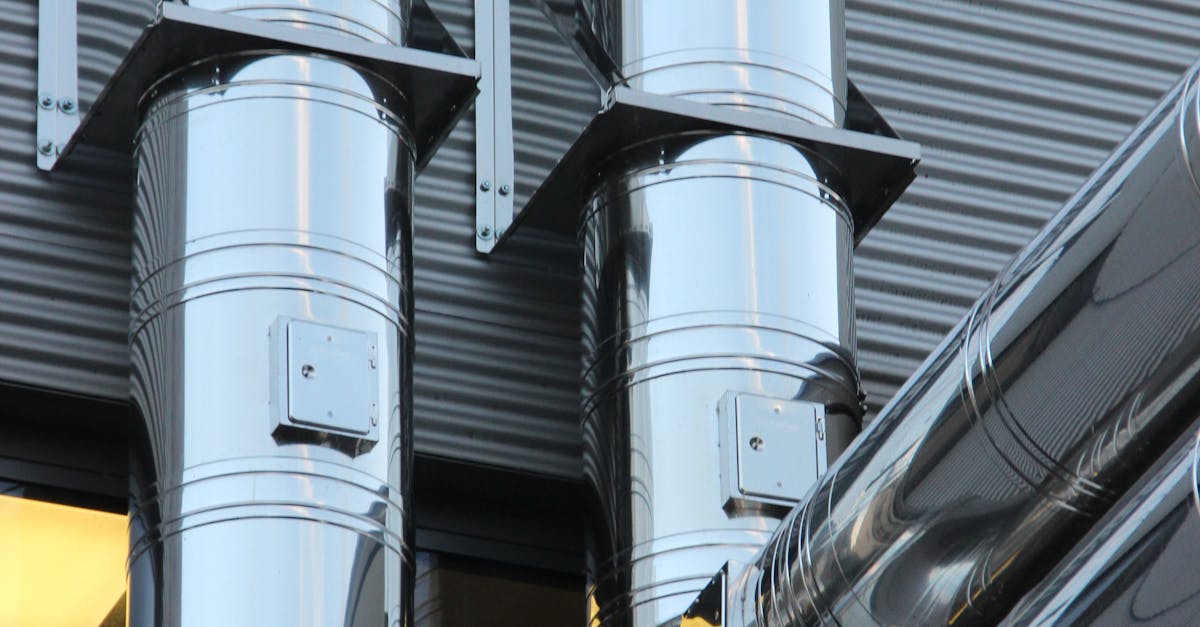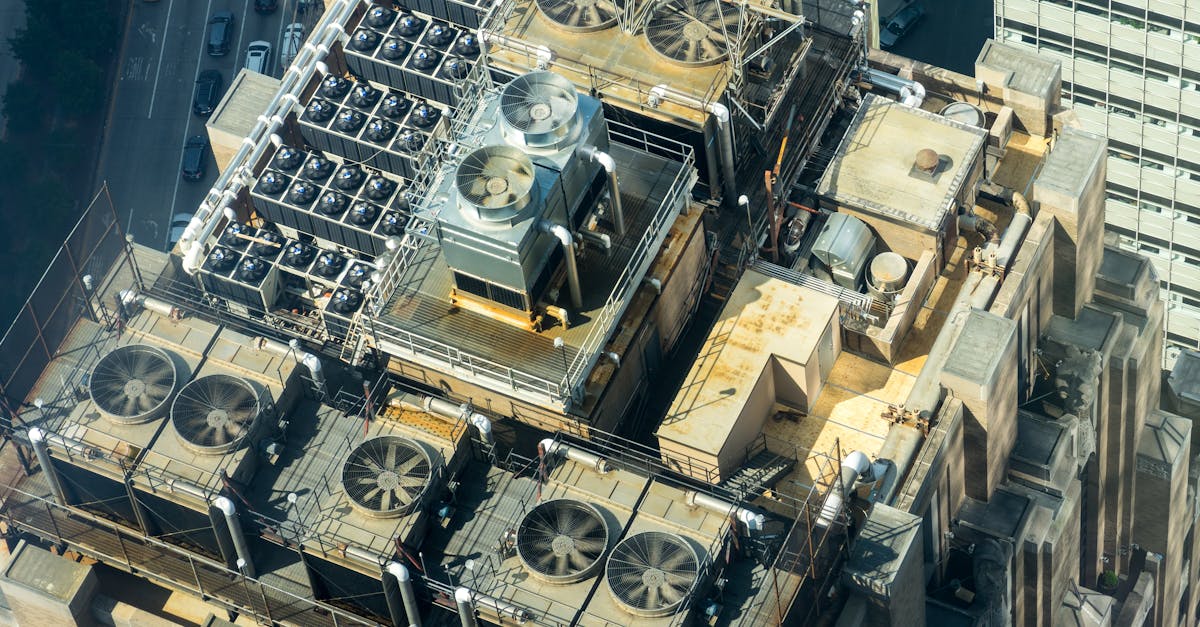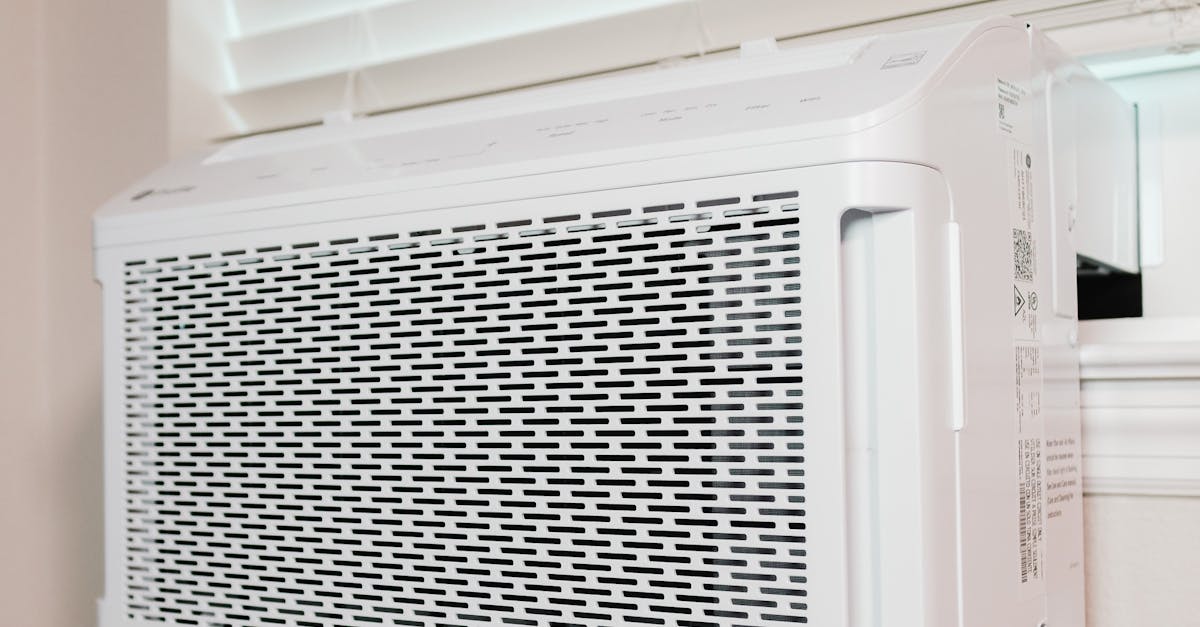
Table Of Contents
Variable Refrigerant Flow (VRF) Systems
Variable Refrigerant Flow (VRF) systems have gained significant popularity in commercial settings due to their adaptability and efficiency. These systems allow for individual control of multiple indoor units, meaning different zones can maintain varying temperatures simultaneously. This feature is particularly beneficial in larger buildings, where different areas may have distinct heating and cooling requirements. Furthermore, VRF technology utilises refrigerant as the primary medium for heat transfer, which enhances the overall efficiency of the system compared to traditional heating, ventilation, and air conditioning (HVAC) units.
The benefits of VRF systems extend beyond energy efficiency. They typically have a compact design, making them easier to install in constrained spaces commonly found in urban environments. For businesses considering a dependable solution for their heating and cooling needs, opting for VRF systems is a sound approach, especially with reliable Commercial Air Conditioning Installation Wolverhampton, West Midlands. This bespoke installation ensures that the system operates at peak performance while catering specifically to the requirements of each commercial space.
Advantages of VRF Technology in Commercial Settings
Variable Refrigerant Flow (VRF) systems offer significant advantages in commercial settings due to their advanced technology and flexibility. These systems allow for simultaneous heating and cooling in different zones, making them ideal for buildings with varied temperature requirements. This capability not only enhances occupant comfort but also optimises energy efficiency, as each zone can be controlled independently based on utilisation and occupancy. Businesses in locations like Walsall, West Midlands, can benefit greatly from this functionality during peak seasons when energy demands often fluctuate.
Additionally, VRF systems are designed for high performance while minimising operating costs. Their compact and modular design is particularly suited for commercial spaces where installation space may be limited. By reducing energy consumption, organisations can experience lower utility bills, translating into long-term savings. For those considering Commercial Air Conditioning Installation Walsall, West Midlands, VRF technology presents a compelling case for its economic and operational advantages, ensuring that investments are maximised while maintaining a comfortable environment.
Energy Efficiency Ratings
Energy efficiency ratings play a crucial role in evaluating air conditioning systems for commercial environments. These ratings, such as SEER (Seasonal Energy Efficiency Ratio) and EER (Energy Efficiency Ratio), indicate the cooling output relative to energy consumed. Higher ratings signify more efficient systems. For businesses, investing in equipment with better energy efficiency can lead to significant savings on electricity bills and reduced environmental impact, which is increasingly appealing to eco-conscious consumers.
When considering commercial air conditioning installation in the West Midlands, understanding these efficiency ratings becomes essential. Choosing systems with higher SEER and EER ratings contributes to lower operational costs and enhances overall performance. Additionally, many local regulations encourage the use of energy-efficient technologies, making it not only a financially sound choice but also a responsible one for businesses looking to improve their sustainability practices.
Importance of SEER and EER in Commercial AC
The Seasonal Energy Efficiency Ratio (SEER) and the Energy Efficiency Ratio (EER) are critical metrics for evaluating the performance of commercial air conditioning systems. SEER measures the cooling output during a typical cooling season divided by the total energy consumed, helping businesses understand energy usage over time. EER, on the other hand, represents the efficiency during peak cooling conditions, providing insight into performance under more extreme temperatures. These ratings assist in comparing different systems, enabling businesses to choose models that not only meet their cooling needs but also maintain cost-effectiveness.
In regions like Coventry, West Midlands, where energy costs can be significant, investing in systems with higher SEER and EER ratings can lead to substantial savings. Selecting an air conditioning unit with favourable efficiency ratings ensures that businesses can reduce overall energy consumption while maintaining a comfortable environment. Furthermore, the implications of these ratings extend beyond immediate costs, affecting long-term operational budgets. A well-planned commercial air conditioning installation can thrive in both performance and financial efficiency when based on these crucial energy metrics.
Maintenance and Operating Costs
The maintenance and operating costs of commercial air conditioning systems play a crucial role in determining their long-term viability. Regular upkeep is essential to prevent potential breakdowns and ensure optimal performance. Neglecting maintenance can lead to larger, unplanned expenses due to inefficient operation or the need for significant repairs. Investing in professional services can mitigate these risks, allowing businesses to maintain smooth operations and manage their budget effectively.
When considering options like VRF systems, it is vital to weigh the initial investment against ongoing costs. Although the initial setup might be higher, the energy efficiency of these systems often results in reduced utility bills. Engaging with a reliable provider, such as those offering Commercial Air Conditioning Installation Coventry, West Midlands, can further ensure that businesses receive the necessary expertise to optimise their systems for performance and cost-effectiveness.
Long-Term Financial Considerations
The financial implications of selecting the right commercial air conditioning system extend beyond initial installation costs. Investing in modern systems, such as Variable Refrigerant Flow (VRF), can lead to significant savings over time due to their energy efficiency and reduced operational expenses. Proper planning and consideration of the system's long-term performance can help organisations avoid frequent replacement and costly repairs, fostering a more sustainable financial approach.
When assessing long-term financial considerations, businesses should also take maintenance into account. Regular upkeep can prevent unexpected breakdowns and costly downtime, enhancing overall operational efficiency. Companies in need of reliable solutions may benefit from professional services like Commercial Air Conditioning Installation Coventry, West Midlands, ensuring that their systems run smoothly and economically over their lifespan.
FAQS
What are Variable Refrigerant Flow (VRF) systems?
Variable Refrigerant Flow (VRF) systems are advanced air conditioning systems that use refrigerant as the cooling and heating medium. They allow for simultaneous heating and cooling in different areas of a commercial building, making them highly efficient and versatile for varying load demands.
What are the advantages of using VRF technology in commercial settings?
The advantages of VRF technology in commercial settings include improved energy efficiency, the ability to control individual zones, reduced installation space, and quieter operation. These features contribute to better comfort levels and lower energy costs over time.
Why are energy efficiency ratings important for commercial AC systems?
Energy efficiency ratings, such as SEER (Seasonal Energy Efficiency Ratio) and EER (Energy Efficiency Ratio), are crucial for assessing the performance of commercial AC systems. Higher ratings indicate a more efficient unit, which can lead to significant savings on energy bills and a reduced environmental impact.
What should I consider regarding maintenance and operating costs for commercial AC?
When considering maintenance and operating costs for commercial AC systems, it's essential to factor in regular servicing, potential repairs, and the overall efficiency of the system. Investing in a high-quality, energy-efficient model can lead to lower long-term costs and fewer service interruptions.
How do long-term financial considerations affect the choice of AC for commercial use?
Long-term financial considerations play a crucial role in choosing an AC system for commercial use. While the initial investment may be higher for energy-efficient and advanced systems like VRF, the reduction in energy consumption and maintenance costs can lead to overall savings and a quicker return on investment in the long run.


